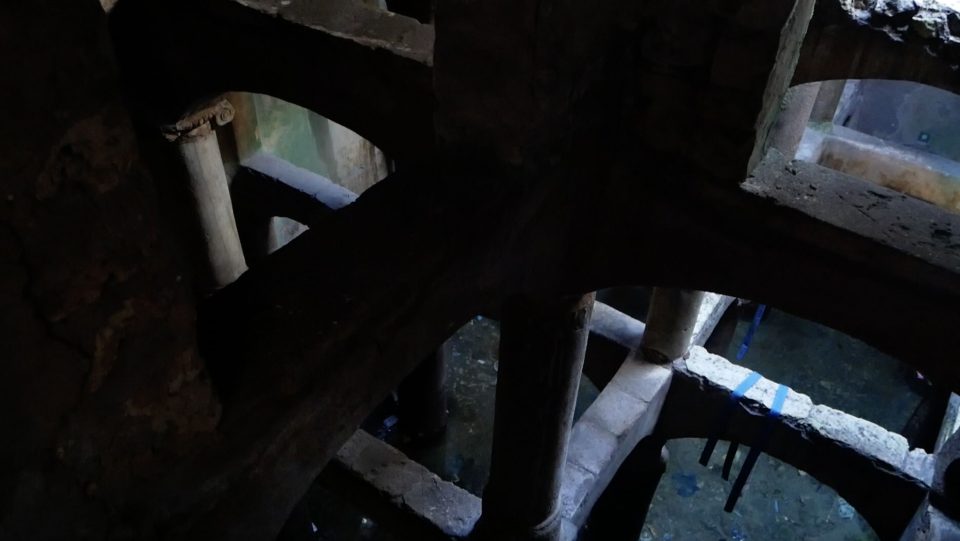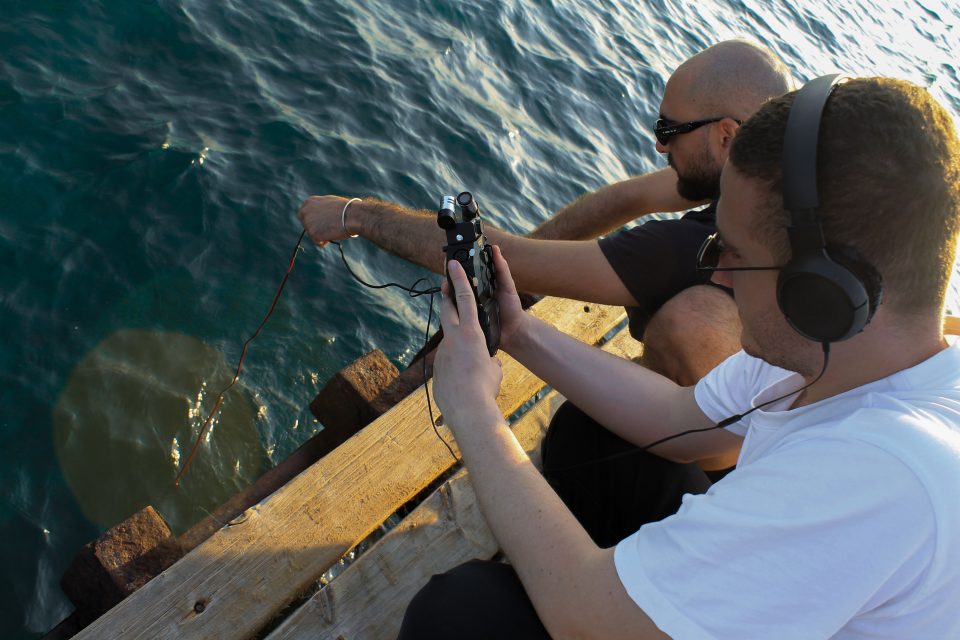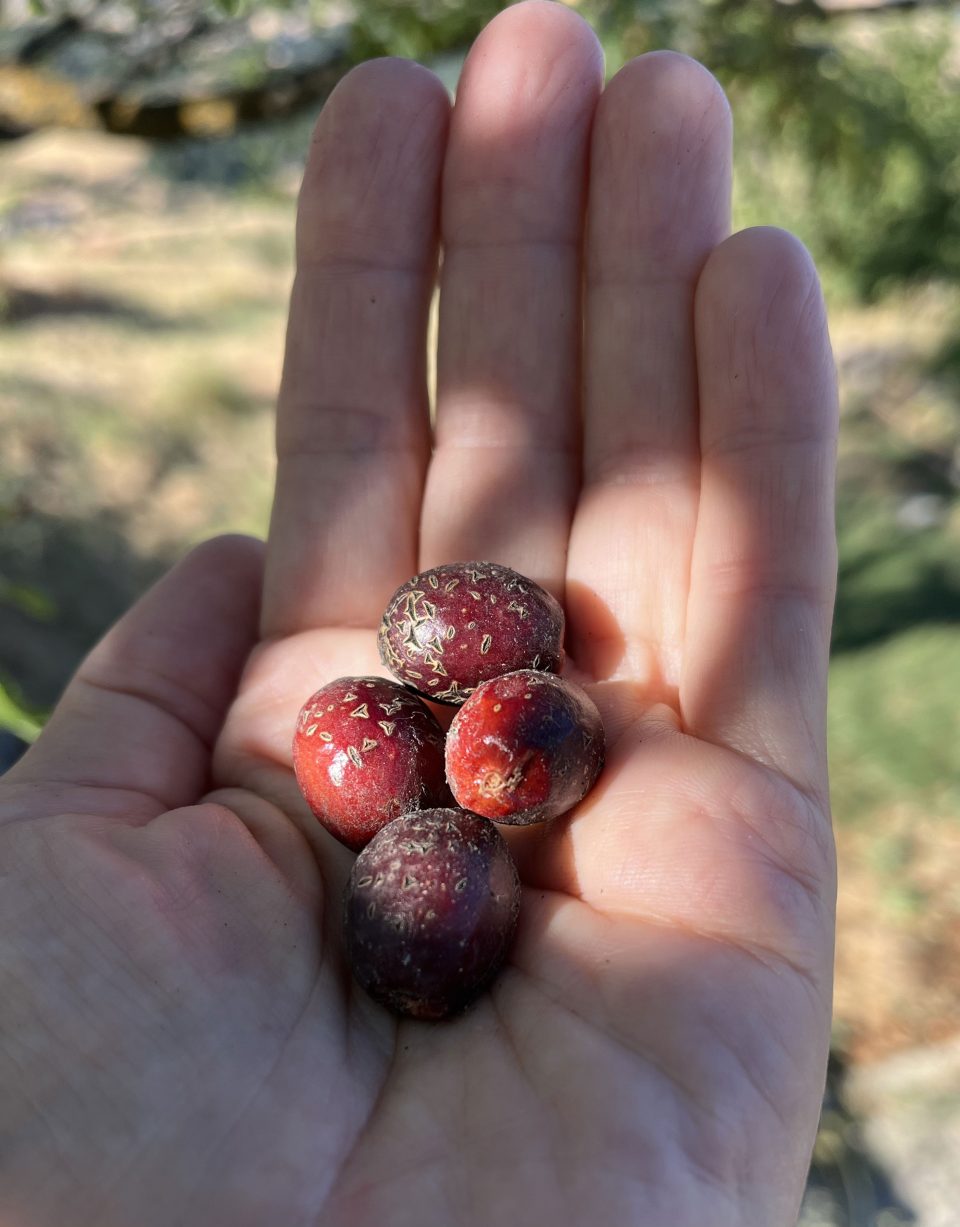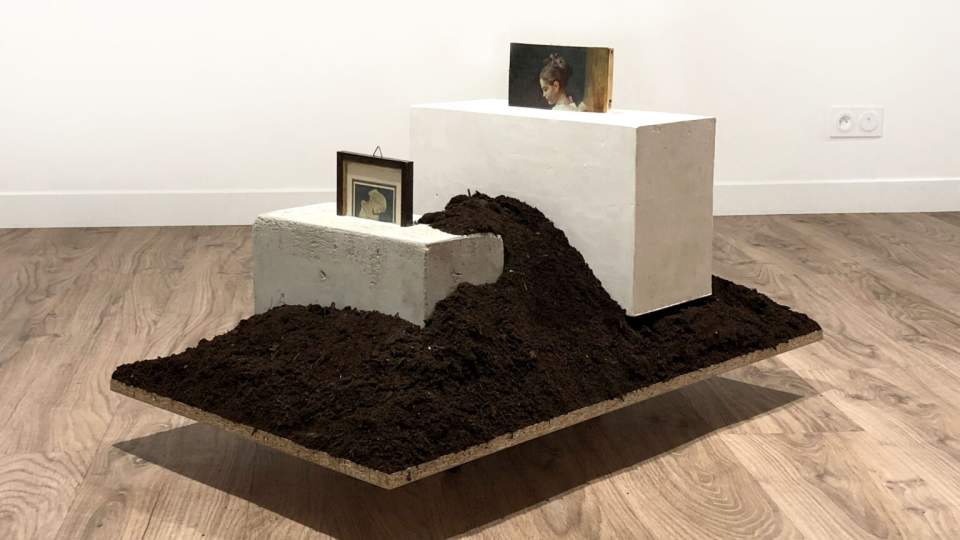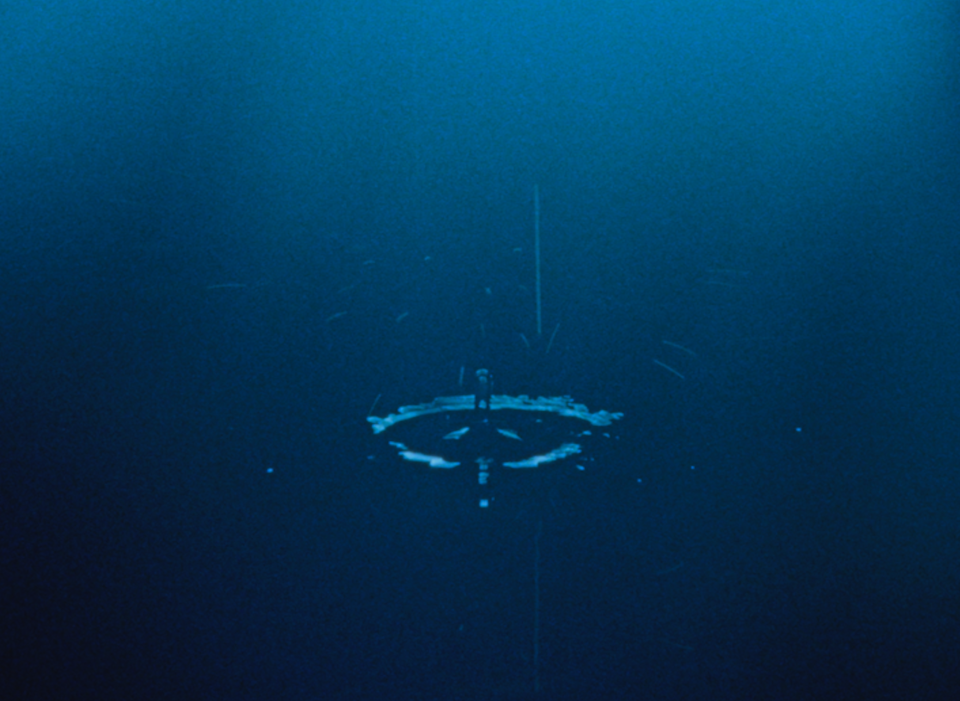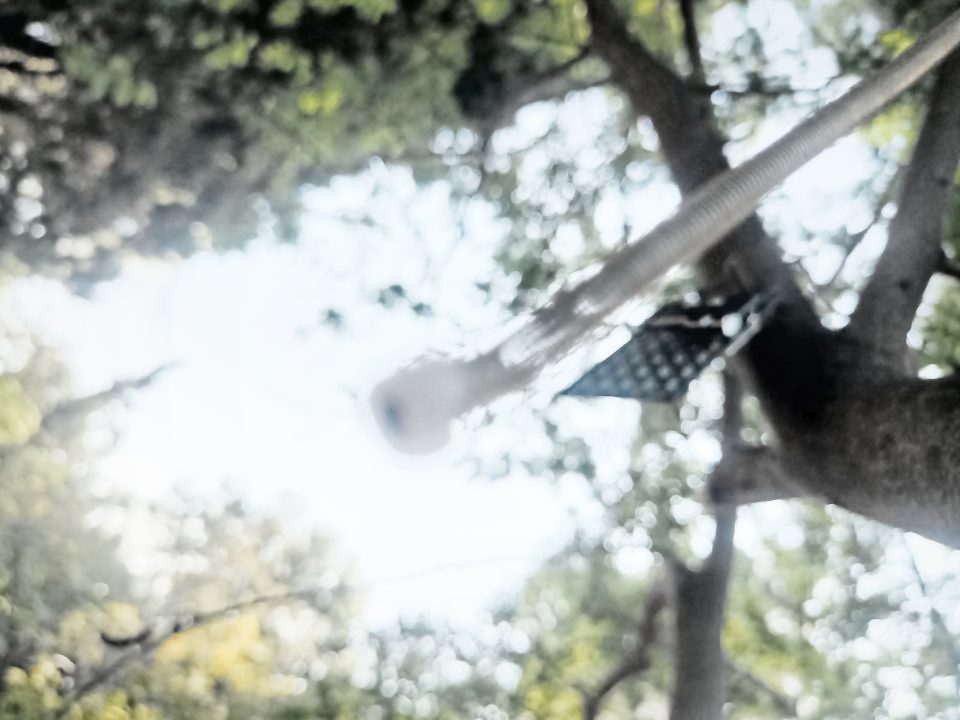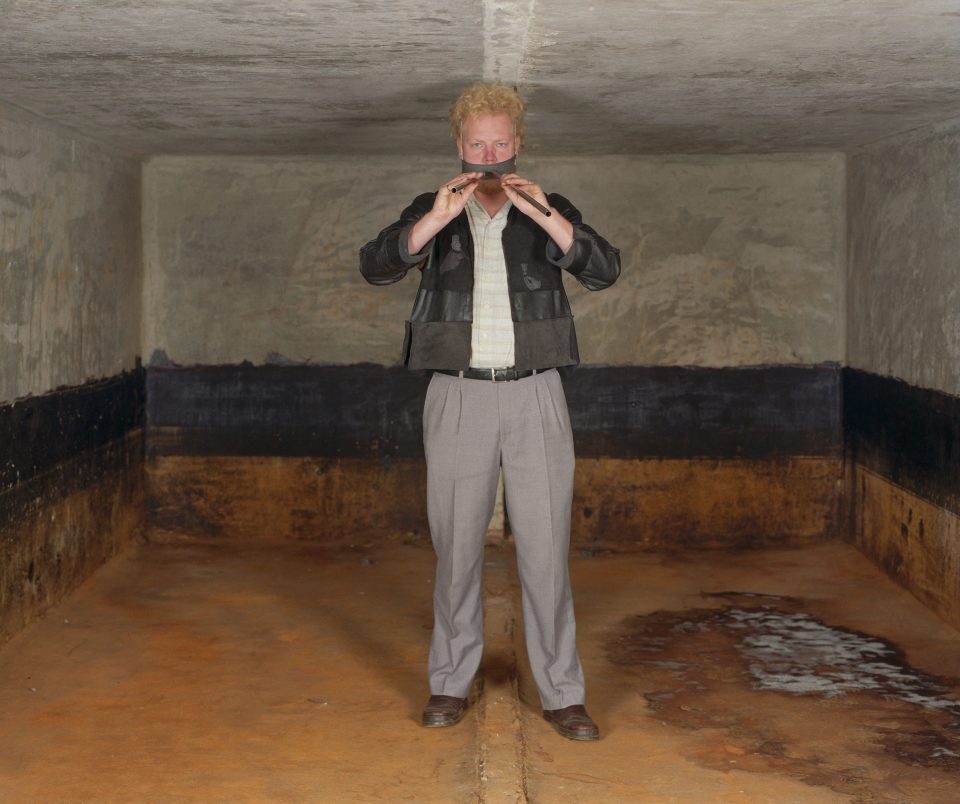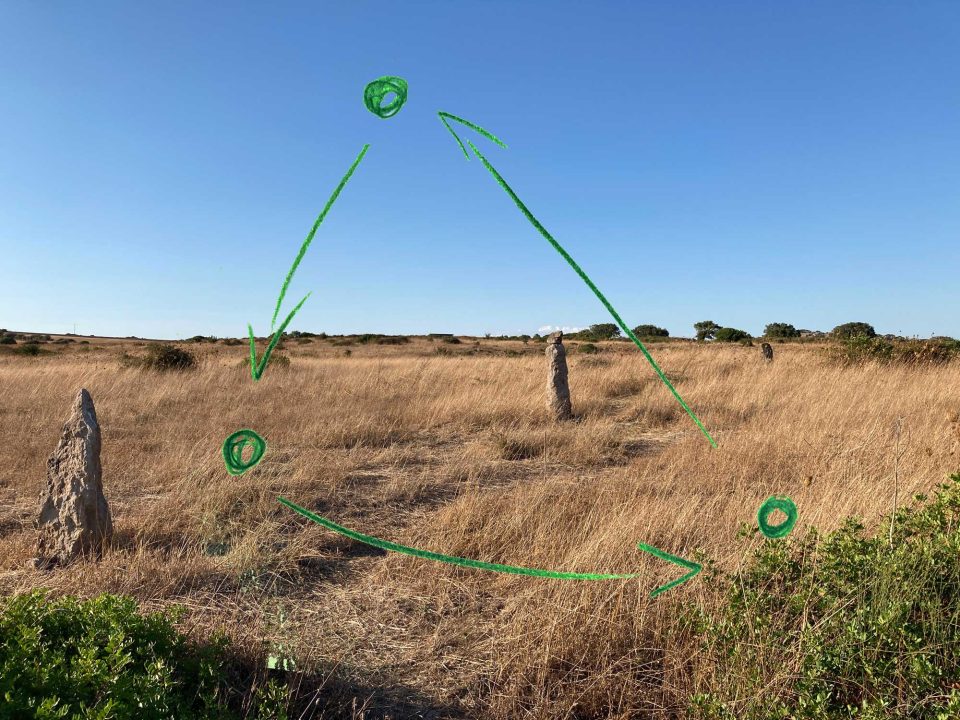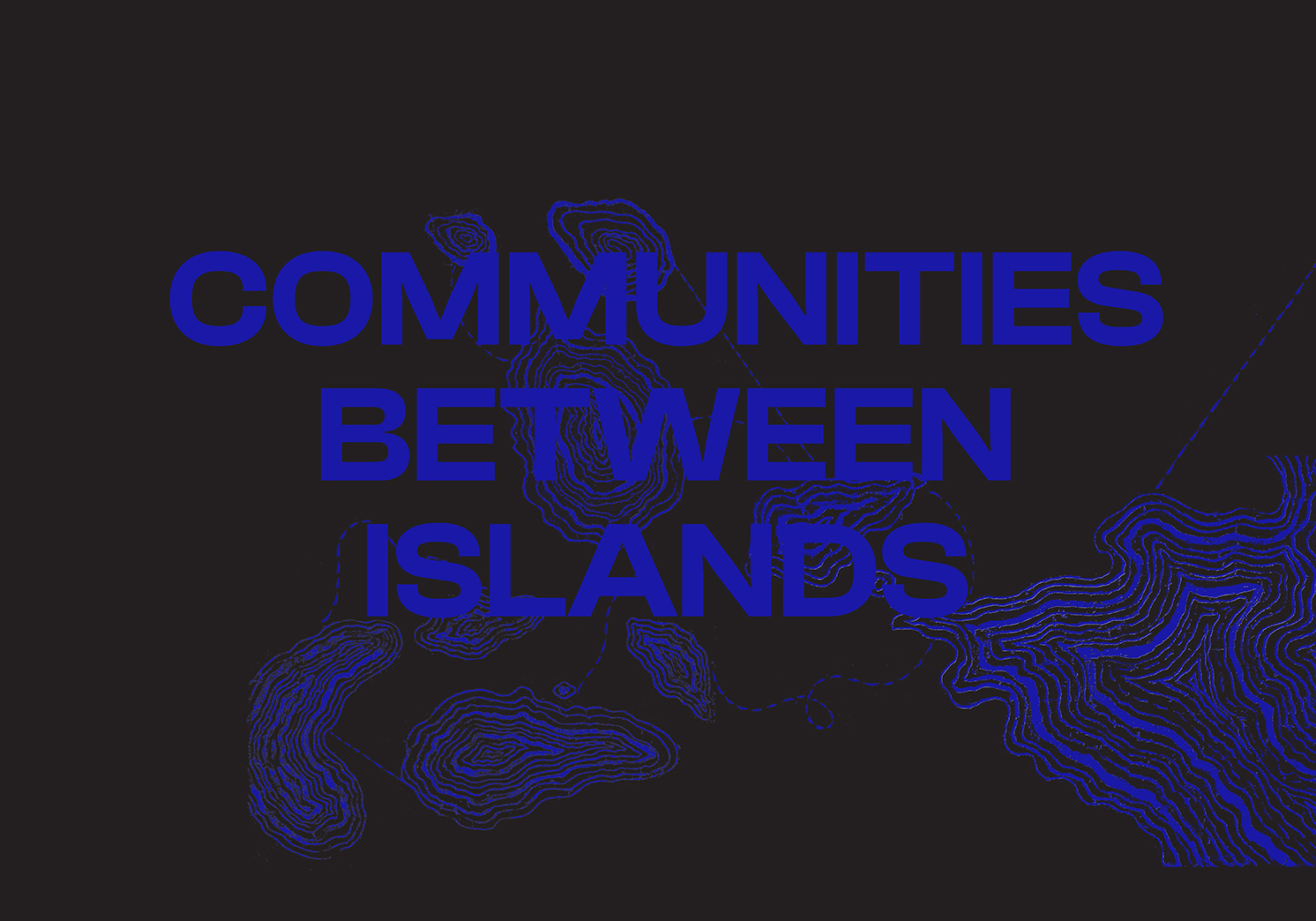
Introduction
“Communities Between Islands” is a collaborative initiative involving organizations on three Mediterranean islands: Providenza in Corsica, France; Cherimus in Sardinia, Italy; and Archipelago Network in Syros, Greece. The project aims to foster interdisciplinary collaboration and engagement with local communities through artistic residencies and workshops.
From September 2023 to the end of 2024, nine international artists from diverse disciplines will travel to Corsica, Sardinia, and Syros, spending a total of five weeks in residence. During their stay, the artists will collaborate with local communities, creating novel artistic commissions inspired by local thematics and concerns. The participating artists will present the outcome of the residencies in collaboration with local art institutions (FRAC Corsica, Museo Nivola in Sardinia, and the Syros International Film Festival) and the municipalities of Bastia, Perdaxius, and Syros-Ermoupolis on each respective island.
Communities Between Islands is a Creative Europe project funded by the European Commission, realized with the support of the Goethe-Institut Athen and the J.F. Costopoulos Foundation.
Chapter #01: Untraced Passages
For the first chapter of the project, Archipelago Network has invited the artists Marianne Fahmy (1992, Egypt), Latent Community (Sotiris Tsiganos, 1992 and Ionian Bisai, 1992 Greece), and Elke Marhοfer (1967, Cuba) to investigate the contemporary environmental crisis and local realities through time-based media.
The four residents start their journey from Corsica, continuing to Sardinia and concluding in Syros; they visit Syros this September, where they will host a series of public workshops and works-in-progress presentations from September 20-30, 2023, in collaboration with the Syros International Film Festival (SIFF). A screening dedicated to the participating artists’ previous work will take place on September 30.
The residency program and public presentations in Syros are implemented in collaboration with curator Eva Vaslamatzi.
Marianne Fahmy
Laws of the Ruins
During the residency, Marianne Fahmy expands her research on marginalized narratives related to sea and water. Coming from Alexandria, a city that has drowned numerous times throughout history, the artist seeks to address the criticality of the city’s current situation due to climate change. By investigating various water structures both ancient and modern on all the three islands that reflect political and social changes, she aims to question and bring to light different approaches and knowledge systems in order to secure a sustainable future for the islands, while raising historical consciousness about their past existence.
Marianne Fahmy lives in Alexandria, Egypt, and works primarily with installation and film. She deploys past and current narratives into potential futures that oscillate between fiction and reality. Through her video, photography, sculpture, and mixed media works, she takes on the role of a new historicist, using parafiction to deconstruct the social and political issues of the present. Her work has been presented at Sharjah Biennale 2023, 7th Yokohama Triennial (2020), Manifesta 13 (2020), Towner International (2020), Mediterranea 19 Young Artists Biennale (2020), Havana Biennale (2019), and Dakar Biennale (2018), “Alexandria” group show at MUCEM and Bozar Centre for Fine Arts, Brussels (2022).
Latent Community
Resonant Rehearsals
On all three islands Latent Community engage in extensive fieldwork and collaboration with local communities, environmental activists, and scientists focusing on how pollution and activities of the tourist, military and maritime industries affect social and ecological equilibriums in unpredictable ways. By listening to diverse voices and rendering images of damaged environments, they aim to map the polyphony of the liquid connections between Corsica, Sardinia and Syros. Their approach lies in repurposing military-developed sonic and image capturing technologies from extractivist surveillance devices into artistic tools for active stewardship and protection of endangered ecosystems and communities.
Latent Community is the interdisciplinary artist duo by visual artists and filmmakers Sotiris Tsiganos and Ionian Bisai. They work with the moving image in research-based projects as a tool to explore issues of social, political and ecological justice. Their interdisciplinary practice integrates extensive fieldwork with relational strategies and performative sequences as means to render forgotten memories, to amplify unheard voices and to explore overlooked ecosystems. Their work has been presented in various forums, including the Athens Biennale (2017), Documenta 14 – Public Programs (2017), Thessaloniki Documentary Festival (2020), Mediterranea 19 (2021), 23rd Sydney Biennale (2022).
Elke Marhofer
Exploring Resilience
Revisiting Practices of Wilderness
Rather than triggering dystopian feelings of shrinkage and fear in the face of a world without fossil fuels, Elke Marhofer aims to explore potentials of space for other-than-fossil-fuel perspectives. During her residency, the artist looks into a not-so-distant past, seeking to rediscover moments of indigenous and/or traditional ecological knowledge in consensus with the environments, such as chestnut culture in Corsica, the foraging of mushrooms and other edibles in Sardinia, and dry-wall farming in Syros. Working with local foragers, farmers, biologists and activists, the project aims to visit distinct vegetation zones on the islands with their variously disturbed environments, explore their current state of resilience and create awareness for the vulnerability of fragile environments.
Elke Marhofer studied Fine Art at SAIC Chicago and ISP Whitney Museum of American Art. Her work investigates ecological practices for human and nonhuman communities. She was awarded a PhD and Postdoc at Kyoto University, Japan. Her films were screened at the Flaherty NYC, Jeu de Paume Paris, Courtisane Ghent, Cinematek Brussels, Stockholm, Toronto & Tokyo, transmediale Berlin, BFI London, Berlinale Berlin, IFFR Rotterdam, Images Festival Toronto, Berlinische Galerie, Showroom London, Kyiv Biennale, Kaohsiung Taipei, Badischer Kunstverein, FCAC Shanghai, MFA Houston.
Chapter #02: Woven By the Currents
Following the warm reception of the first cycle curated by Archipelago Network, this chapter continues the program’s mission to encourage collaboration and interaction among international artists with the local communities of Corsica, Sardinia, and Syros through participatory workshops and public programs.
For the second chapter, Providenza has invited artists Sarah-Anaïs Desbenoit (1992, France), Dania Shihab (1982, Iraq), and Amalia Vargas (1994, Colombia) to explore the interconnectedness of landscapes, narratives, and traditions across these three Mediterranean islands, resulting in projects resonating with these island cultures, utilizing different expressive mediums: sound, video, and photography respectively.
From May 7 to May 16, 2024, the artists visit Syros for the first part of their research, during which they will host a series of workshops open to the public.
Dania Shihab
Object – Land
By drawing parallels between the bodily displacement of the migrant experience and the geographic displacement of island life, Dania Shihab examines how these realities inform the evolution of new melodic motifs and modes, and how they impact the preservation of traditional music. This process involves collecting field recordings and exploring the topographies of the three Mediterranean islands, focusing on how music practices in both native and immigrant communities are influenced by contemporary culture and the surrounding landscape. After compiling this information, Shihab will use her findings to create a long-form composition.
An architect of textured, neo-ambient soundscapes, Dania Shihab explores both sound and identity, focusing specifically on how the latter has fractured in a post-colonial world. Born in Baghdad, raised in Tasmania and now based in Barcelona, she moves between cultures and continents, her amorphous creative vision directly tied to her transient existence. The founder of experimental outpost Paralaxe Editions, Dania divides her time between Spain and the remote corners of Australia, where she works as an emergency doctor. Her musical practice, however, is preoccupied with harmonics and tonality, weaving together manipulated vocal fragments, processed field recordings and meditative atmospheres. Dania has released on labels such as Geographic North, Superpang and Ecstatic. She has performed at Mira, Sonar, Sonic Acts, Arts Santa Monica, Cafe Oto amongst others.
Amalia Vargas
Ecume des flux
For her residency project, Vargas delves into the interplay of ancient and modern influences across the islands of Syros, Sardinia, and Corsica. Each island’s landscape serves as a source of inspiration for sculptural forms that emerge from objects found on their shores. During her voyage, she meticulously collects such found objects, drawing inspiration from architectural motifs such as caryatids and balusters. Through this process, her work aims to construct an archaeology, an archive of our time—a testament to the enduring dialogue between humanity and the natural environment, inviting the audience to reconsider their relationship with the landscapes and cultural heritage of the Mediterranean islands.
By changing the use of objects, Amalia Vargas articulates an interest in their intrinsic values, which fluctuate between devaluation through abandonment and revaluation through reuse, modifying uses and perceptions. From actualisation to singularisation, she offers a second life to the objects she manipulates, as well as a metamorphosed future. Amalia Vargas graduated with honors in 2018 from the Ecole superieure d’arts et medias of Caen/Cherbourg. In 2017, she founded the collectif OK together with three comrades, artists and friends, with the aim to counter the individualistic ideology of the art world and to propose their own conditions for exhibitions. Her work has been presented at Berlinskej Model in Prague in a solo exhibition, at 8. Salon in Hamburg, at the Centre culturel des Fosses d’Enfer in Saint-Remy-sur-Orne, at DOC! Paris, at the Galerie l’axolotl in Toulon and, more recently, at the Musee Fabre, the MO.CO La panacee in Montpellier, at La Ferme du Buisson in Noisiel and at the FRAC CORSICA in Corte.
Sarah-Anais Desbenoit
Mermaid Melody
During the residency, Desbenoit investigates local myths relating to women across the islands of Syros, Sardinia, and Corsica. Through a blend of video and sound elements, she explores the beliefs and narratives shaped by the landscapes of these Mediterranean islands. Symbolism embedded within the territories helps to unearth a rich tapestry of myths and legends passed down through generations. Employing a combination of documentary and fictional approaches, Desbenoit aims to stage these recollections, offering audiences a unique perspective on the relationship between humanity and nature in these island landscapes.
Sarah-Anais Desbenoit graduated from the Ecole nationale superieure d’arts de Paris-Cergy in 2020 before joining Le Fresnoy — Studio national des arts contemporains in Tourcoing. Underpinned by long-term research—pursued in particular during a residency at the Tighmert Oasis in the Moroccan desert and an internship at Villa Kujoyama in Japan—, her work focuses on the mechanisms of appearance and disappearance of images and their impact on memory and cognition. Through the creation of miniatures, but also through the use of video, projection and sound, her practice develops around the question of illusion and sublimated disorder. Inducing a meditative slowing down, her visual and aural installations are conceived as liminal places where several layers of reality are superimposed. In 2022, she made Phalene, a short film shot in 16 mm, which plunges us into a tale composed of a succession of tableaux vivants in which twin sisters go through a mystical experience. Parallel to her artistic practice, Sarah-Anaïs is also an editor/grader/camera operator and assistant director. She also directs video clips for emerging musicians and assists various artists in audiovisual production for museums and for haute couture brands.
Chapter #03: …and so we'll end up singing
Building on previous cycles curated by Archipelago Network and Providenza in autumn 2023 and spring 2024, this chapter further develops collaborations between international artists and local communities across Corsica, Sardinia, and Syros.
For Chapter #03: …and so we’ll end up singing, Cherimus has invited artists Maya Aghniadis (1991, Greece/Lebanon), Roberto Casti (1992, Italy), and Lukas De Clerck (1994, Belgium) to explore the interconnectedness of Mediterranean musical traditions and the passage of time through innovative, cross-island artistic projects. Each of their works delves into the cultural and auditory landscapes of Syros, Corsica, and Sardinia, focusing on rhythm, melody, and the reimagining of traditional instruments. By blending elements of the past and present, they aim to create a speculative, shared musical narrative that transcends geographical boundaries.
From September 17 to 25, 2024, the artists visit Syros for the initial part of their research, hosting a series of public workshops.
Maya Aghniadis
Ousura
Aghniadis’s project explores the interplay between past, present, and future, reflecting on how we often plan ahead, lose touch with the present, and grapple with our past. Ousura is a sonic narrative that delves into the essence of time through rhythmic play and evocative soundscapes, transporting listeners to a space that feels both ancient and familiar.
The project weaves together cultural and auditory threads from Syros, Corsica, and Sardinia. It also incorporates elements from workshops where diverse groups perform together on a single note and rhythm, despite never meeting, creating a rich tapestry of interconnected sounds and experiences.
Maya Aghniadis, also known as Flugen, is a music composer and multi-instrumentalist raised in Lebanon based in Athens. After completing a year of professional training in Film Scoring in 2016, Maya began exploring new sounds and theories, leading to the creation of her project, Flugen.
Flugen’s music evolves over time, blending percussive beats, soulful melodies, and vocal harmonies with elements of neo-classical and ambient soundscapes. Maya’s artistic approach revolves around collaborations and storytelling through music, drawing inspiration from the echoes of the Mediterranean Sea.
Lukas De Clerck
Experimental Archeology
De Clerck’s project explores the intersection of Mediterranean musical traditions through the crafting of aulos reeds from harvested reed (phragmites australis). Focusing on the late harvest season in Syros, the project extends across Syros, Sardinia, and Corsica, integrating local materials and traditions to create a unique cross-island musical experience. In Sardinia, the project will be inspired by the launeddas, with plans to develop a fusion instrument that combines the aulos and launeddas, symbolizing a musical connection between the islands. Corsica’s caramusa, akin to a bagpipe, adds another layer to this exploration.
By uniting these diverse elements—reed harvesting, traditional instruments, and regional variations—the project aims to weave a rich tapestry of Mediterranean sound. This collaborative effort serves as a creative prelude to further exploration and fusion of musical traditions across the islands.
Lukas De Clerck is a musician and sound artist. His artistic practice is currently centered around the Aulos, an ancient Greco-Roman, double-reeded double pipe, that went extinct more than a millennium ago. After several years of delving deep in the practice of aulos reed making and playing replicas of ancient instruments, he opens up his inevitably auto-didact artistic output. Following the desire to strip the instrument from its enigmatic past, De Clerck created a new, contemporary aulos: The Telescopic Aulos of Atlas.
Roberto Casti
Song for a future embrace
Casti’s project explores the concept of anticipation through a unique sound installation. The composition, which comprises rhythm, melody, and vocals, is presented in its individual parts rather than as a unified piece. The installation features three speakers and various musical instruments and objects used to play and record the work. These elements remain inactive until activated by the participants from the islands who contributed to its creation.
The installation represents a promise of future collaboration rather than a reflection on past traditions. While Syros, Corsica and Sardinia share cultural commonalities, they also highlight the potential for new forms of communication and alliance. By presenting the song’s components separately, the project underscores the anticipation of a future performance where all contributors can come together.
Roberto Casti is an Italian artist, musician and writer. His artistic practice – spanning across different media such as sound, performance, video, installation and drawing – is not focused on a formal knowability but rather on a constant and necessary interpretative and theoretical research on the reality seen as a place of relationships and cohabitation. With the collective project The Boys and Kifer, founded in 2014 as a fictitious music band, he investigates new ways of being together collaborating with different artists, theorists and musicians.
He has collaborated and exhibited in various spaces and institutions such as MACRO and IUNO (Rome), MAN (Nuoro), FRAC of Corte (France), Marsèlleria (Milan), PAV – Parco Arte Vivente (Turin), OGR – Officine Grandi Riparazioni (Turin), and the Brera Academy of Fine Arts (Milan). He has published articles for Nero On Theory, Kabul magazine and Antinomie. In 2023, he contributed to the publication of Soft Crash, a collective book produced by the MACRO museum of Rome.
